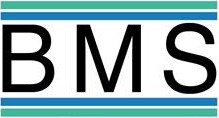We provide training and technical assistance services to ensure that BMS data is as high quality and reliable as possible, and to serve the BMS Centers in the hands-on work that they do with BMS participants.
Training for External Researchers
We provide an overview of the BMS data for external researchers. We also do training for people interested in the BMS at annual events, such as the American Burn Association Annual Meeting.
Training for BMS Centers
We have an online training module suite for both new and continuing BMS Center staff. The suite is always growing. Current modules include:
- Cultural competence, to ensure that data collectors feel comfortable working with participants of all racial and ethnic backgrounds, and to ensure that BMS data is representative of these participants
- Introduction to BMS and the REDCap Database
- Building Rapport
- Working with Participants in Distress and more…
We also oversee the BMS Data Committee, which consists of BMS Center staff involved in recruitment, data collection, data entry, and data management. The committee meets monthly and prioritizes topics for BMS trainings, and also serves as a more informal training space.
Technical Assistance for External Researchers
When external researchers request the BMS data, we provide technical assistance on an as-needed basis for all questions and issues regarding the data.
Technical Assistance for BMS Centers
To ensure that BMS Centers staff are supported in their jobs, we provide technical assistance activities across a range of subjects. These include analytical and methodological support, REDCap database and data entry support, coding of data, eligibility issues, and more. To access our technical assistance services, BMS Center staff initiate an email or phone call. We respond to this within 24 hours, and provide a timeline for when the assistance will be completed.
Examples of Technical Assistance:
Sometimes technical assistance requests are simple, such as an issue with a REDCap login or a query about the number of participants who have been consented in a given timeframe. Others require the development and dissemination of new materials. For example, after discussion with the BMS Data Committee, we determined that we needed recruitment and retention brochures that provide participants with more information about why they should consider participating and what the BMS does with their data. These brochures were created by the NDSC with collaboration from the BMS Data Committee, and are now in use in BMS Center clinics.
